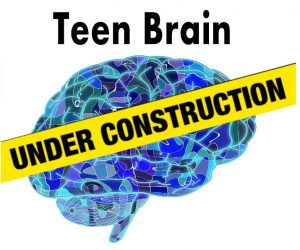 The US National Institutes of Health (NIH) have published the results of a groundbreaking new study regarding screen time and the adolescent brain. Alas, the Adolescent Brain Cognitive Development (ABCD) Study confirms what many parents have feared most: too much screen time can physically alter the brain structure of children.
The US National Institutes of Health (NIH) have published the results of a groundbreaking new study regarding screen time and the adolescent brain. Alas, the Adolescent Brain Cognitive Development (ABCD) Study confirms what many parents have feared most: too much screen time can physically alter the brain structure of children.
For the study, analysts looked at one batch of 4,500 brain scans of children at the ages of 9 and 10. In this study, they found that the children who spent at least 7 hours a day looking at a screen (smartphones and tablets, in particular) had evidence of premature thinning of the brain cortex. This is the outermost layer of the brain which helps the organ to process information coming in from the physical world.
But even two hours a day of screen time, apparently, can have detrimental effects on a child’s brain. Just two hours a day seems to reduce scores on both thinking tests and language tests.
That in mind, the study will track a total of 11,874 nine- and ten-year-old children for the next ten years. This population includes 2,100 twins or triplets. The study will use MRI’s to track brain development; other tests, perhaps, will attempt to determine if there are any other factors. The study will surely examine if digital devices not only affect the brain’s physical development but also things like emotional development and overall mental health.
Of course, the American Academy of Pediatrics has long recommended that parents avoid using digital media altogether, excepting only things like video chats, in children younger than 24 months. This is because babies that young do not facilitate transferring what they see on a screen to their understanding of the real world.
